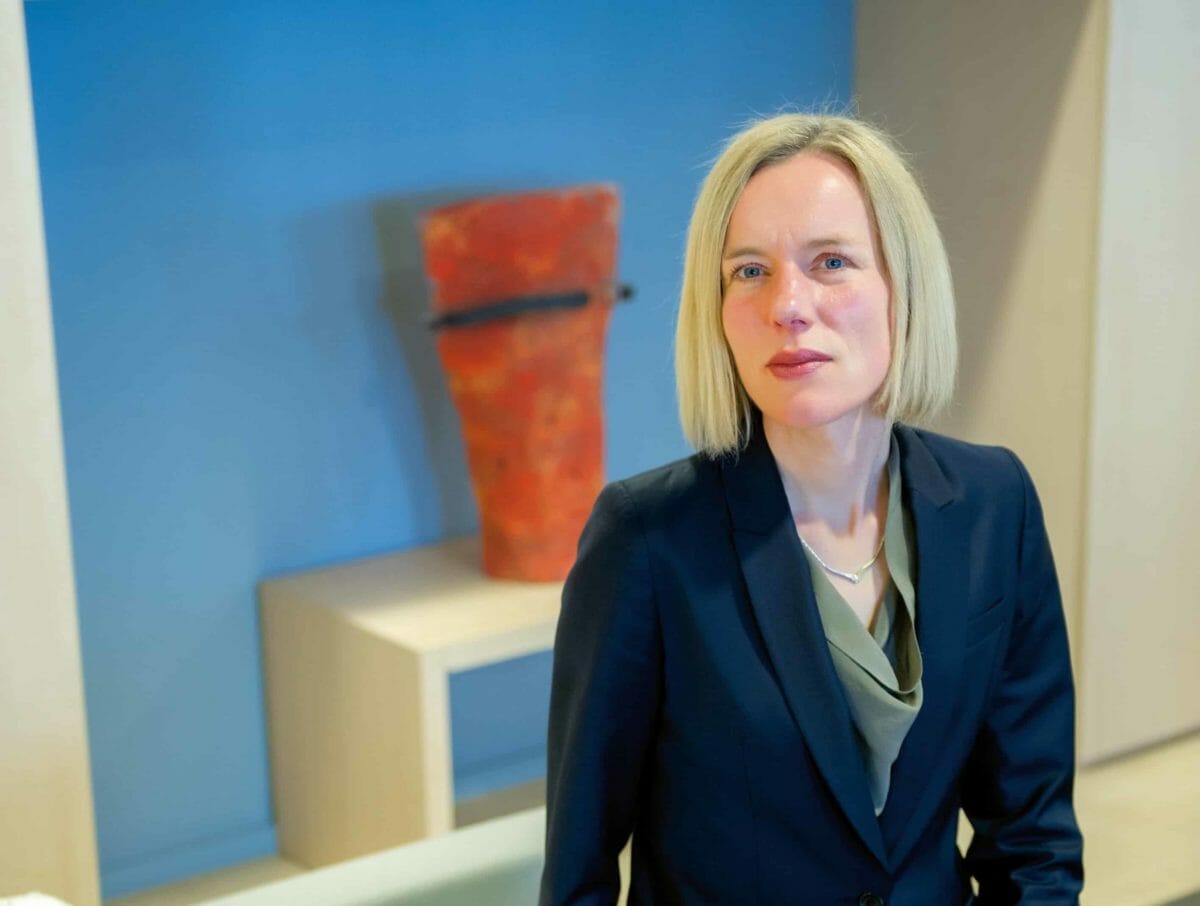Watered-down shareholder participation at AGMs, due to virtual meetings during the pandemic, is sounding alarm bells at APG, the largest pension fund in Europe, where collaboration with other asset owners and organisations is the beating heart of its ESG strategy and a central tenet to its stewardship response to the pandemic.
Virtual annual meetings may be the pandemic norm, but Dutch asset manager APG is concerned about the consequences of lost face-to-face engagement and the ability of investors to collaborate to put pressure on companies to change.
“In our view, AGMs as they are now can only be an interim solution,” said Claudia Kruse, managing director, global responsible investment and governance, APG, Europe’s biggest pension fund in an interview with Top1000funds.com.
The majority of AGMs that APG has attended since the shut down due to the pandemic are one-way webcams, simply speeches that don’t involve two-way dialogue. Nor is the advance voting process as effective according to Kruse.
“We’ve participated in 10 webcast AGMs and sometimes put forward questions as part of a collective engagement, but of course the votes are cast in advance,” she said.
In other cases, questions are not put forward as part of collective engagement, and interaction between the board and retail investors is also lost. Possible solutions include hybrid models where investors can participate virtually in conjunction with a smaller physical meeting, said Kruse.
However, she said success here requires innovation and commitment by companies and boards and has revealed a disparity between different regions.
“In Asia, AGMs largely went ahead. In other countries we have seen more postponement or webcasts,” she said.
Her comments echo growing investor concerns that online AGMs, as well as postponed meetings and meetings being held behind closed doors, are stymying shareholders’ ability to participate as company owners. Only 36 per cent of questions posed to companies by shareholders at virtual AGMs in the US in 2020 were addressed at the event, according to Miriam Schwartz-Ziv, a lecturer at the School of Business Administration at the Hebrew University of Jerusalem in a recent study. It’s an issue on the PRI’s agenda where the stewardship team is advising signatories on how to navigate virtual AGMs and make sure their voices are heard.
“We are working with investors on guidance to navigate the virtual AGM season,” said the PRI’s Fiona Reynolds.
It’s no surprise watered-down shareholder participation is sounding alarm bells at APG. Collaboration with other asset owners and organisations is the beating heart of the asset manager’s ESG strategy and a central tenet to its stewardship response to the pandemic. APG has signed the PRI’s investor statement on the COVID response and under the Human Capital Management Coalition (an organisation comprising 28 global investors with a collective $4 trillion under management) engages on labour rights thrown into the spotlight by the virus, most recently with Amazon.
Looking ahead she sees opportunities for collaboration with DFIs like the European Investment Bank, the World Bank and the Nordic Investment Bank structuring investable COVID recovery loans.
“There is a real opportunity for investors to work with DFIs to design instruments we as investors can invest in and allocate capital to where it is needed for a sustainable recovery,” she said.
Elsewhere, APG’s collective asset owner engagement with the world’s worst polluters through Climate Action 100+ has encouraged companies like Shell to change, while membership of the Institutional Investors Group on Climate Change’s (IIGCC) Portfolio Alignment Initiative currently brings together 70 investors to help design and model asset allocations to fit Paris alignment by 2030. Closer to home, APG is leading the investor contribution to the Netherland’s National Climate Agreement, working to achieve measurable 2030 targets amongst all Dutch financial institutions.
Most recently APG is seeing the fruits of a partnership with Japan’s GPIF, PGGM and Norway’s Norges Bank on the Carbon Real Estate Monitor (CREM) and the exploration of decarbonisation pathways for global real estate come to fruition.
As APG continues its route to a climate neutral portfolio by 2050 and Paris alignment by 2030 the focus is on scenario analysis and strict targets, says Kruse. Recent pledges include a target to cut the listed equity portfolio’s carbon footprint by 40 per cent by 2025, phase out exposure to coal and tar sands and built a $15 billion allocation to in SDG 7 (clean energy) by 2025.
To meet the challenge, APG is planning sweeping new hires across responsible investment, she concluded. ”
We plan to hire an additional 100 people of which 70 will be in portfolio management including responsible investment. We are keeping our focus on long term.”




